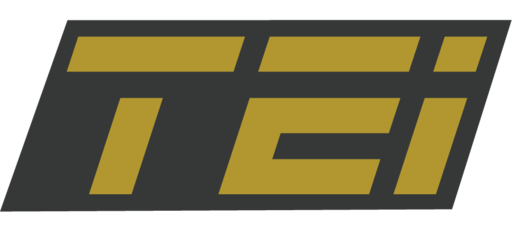Difference between revisions of "User:Kermit/Taipei"
| Line 6: | Line 6: | ||
'''General''' | '''General''' | ||
Taipei Engineering Industrial (TEI) is a small subsidiary of Einstein Engines, founded in Taipei, Earth in April of 2418. Today, TEI | Taipei Engineering Industrial (TEI) is a small subsidiary of Einstein Engines, founded in Taipei, Earth in April of 2418. Today, TEI focuses on cryogenic solutions to replacing phoron-based superconduction to limited success, with their expertise limited to internal contracts with [[Einstein Engines]] or in advanced [[Solarian Alliance]] state facilities. | ||
<div class="mw-collapsible-content"> | <div class="mw-collapsible-content"> | ||
'''Influence''' | '''Influence''' | ||
Revision as of 21:02, 14 February 2025
Taipei Engineering Industrial
"Promoting the general welfare and logistics of future technology."
General
Taipei Engineering Industrial (TEI) is a small subsidiary of Einstein Engines, founded in Taipei, Earth in April of 2418. Today, TEI focuses on cryogenic solutions to replacing phoron-based superconduction to limited success, with their expertise limited to internal contracts with Einstein Engines or in advanced Solarian Alliance state facilities.
Influence
Sol: Headquarters in Taipei, China, Earth; two major equipment manufacturing facilities and four research and development facilities on Earth.
Executives
Chief Executive Officer: Siying Chen, 42, Human
Chief Engineering Officer: Adriana Panganiban, 44, Human
Chief Research Officer: Tingting Huang, 39, Human
Chief Information Officer: Hyosuke Yamanaka-Chen, 57, Human
Chief Data Officer: Yuxuan Tsai-Yang, 49, Human
History
In their early days, Taipei Engineering Industrial was Einstein Engines' subsidiary responsible for research into bluespace drives, aiming to one-up NanoTrasen Corporation's designs. At first, the goal was simply speed, however TEI would later become one of the only companies in the Spur to take heed of the warnings of scientists who predicted the Phoron Scarcity, and included phoron efficiency as one of their key product goals. With little investment, innovations were few and far between, though the company had some success in designing more phoron-efficient bluespace drives, however at a significant reduction in speed. These drives weren't a great hit at the time and, come the Scarcity, NanoTrasen Corporation's research into phoron efficient bluespace drives would trump TEI's designs.
Taipei Engineering Industrial would falter at the beginning of the Scarcity, having had their niche in the market seized by NanoTrasen Corporation, requiring Einstein Engines to step in to handle TEI's debt restructuring to avoid insolvency towards the end of 2462. The company made it through, however significantly downsized; two manufacturing facilities and one R&D facility were shut down for sale. The company would have to change course.
Today, Taipei Engineering Industrial has leant into cryogenic solutions for superconductivity, where certain metal composites are cooled to temperatures below 100 Kelvin, aiming to reduce dependence on phoron-based room-temperature superconductivity. Such solutions are often difficult to include consumer products or on a large-scale, and are stigmatised for being a downgrade to pre-Phoron Discovery technology. Since entertaining the idea of the large-scale refitting of the Spur's current phoron-based infrastructure in favour of cryogenic-based infrastructure, TEI has received criticism for their vision of the futre being both prohibitively expensive and, realistically, only achievable in the Jewel Worlds or on similarly developed planets, leaving the rest of the Spur behind.
Despite having grand aims, Taipei Engineering Industrial remains a small subsidiary hot off near-insolvency, and so their scope is currently very limited. So far, only Einstein Engines more advanced products (including the Suzuki-Zhang Hammer Drive!) and more advanced Solarian Alliance state or military facilities have been refitted to be phoron-free, relying on cryogenics instead. With these small successes, investors have begun to pile in, and Taipei Engineering Industrial is expected to be the go-to company for cryogenic engineering projects.
Major Products
- Taipei CryoCool Energy Storage: An expensive, phoron-free solution to Superconducting Magnetic Energy Storage (SMES). CryoCool SMES units do not rely on phoron for superconductivity and instead rely on older, metal composite superconductors which require cryogenic temperatures to achieve superconductivity. Both the manufacturing, installation, and continued cryogenic cooling of CryoCool SMES units make this option significantly more expensive than today's phoron-inclusive SMES units. They are an occasional sight in advanced Solarian Alliance and Einstein Engines facilities, especially science or medical facilities that already come prepared for maintaining cryogenics equipment.
- Taipei Helium-cooled Power Transmission: Teased in research journals in 2465, TEI's underground power infrastructure aims to create a phoron-free alternative to transmitting power around the Spur's larger cities, stations and ships, using cryogenically cooled helium to cool a non-phoron metal to superconductivity. The product remains in-development.
